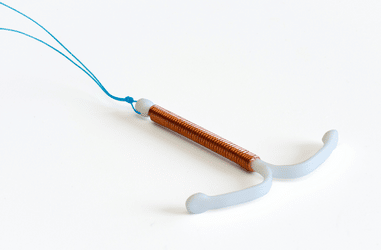Difference Between ParaGard and Mirena

ParaGard and Mirena are intrauterine devices (IUDs) that medical professionals place inside the uterus to prevent pregnancy. The makers of ParaGard and Mirena are both under fire because of defects in their medical devices. However, there are differences between the two lawsuits.
Paragard lawsuits focus on the product breaking during the removal of the product. On the other hand, Mirena lawsuits focus on organ perforation and causing intracranial hypertension. Anyone who has experienced these issues could seek help from a mass tort lawyer.
The Ways ParaGard and Mirena Work
There are many forms of birth control on the market today. Some prevent pregnancy by releasing hormones that allow the egg to implant. Other IUDs prevent pregnancy by interfering with sperm motility and egg fertilization.
When it comes to ParaGard and Mirena, they work in two different ways. Both products are highly effective at what the designers intended them to do. They both prevent pregnancy with over 99% effectiveness. However, the way they prevent pregnancy is different. Mirena omits a hormone for prevention, while ParaGard uses its copper coating to prevent pregnancies.
How Mirena Works
Mirena is a hormonal IUD that can provide birth control for women and stay implanted long-term. Once a medical professional inserts Mirena into the uterus, it begins to release a hormone called progestin. Progestin causes the cervix to stop sperm from reaching or fertilizing an egg. It also thins the lining of the uterus, so if an egg does get fertilized, it won’t implant inside the uterus.
Women can keep Mirena inserted for up to eight years. After that, it can be removed at any time. Once the Mirena is removed, a woman’s fertility will return almost immediately.
Bayer Pharmaceuticals has faced lawsuits against users of their IUDs for several reasons. Some women have experienced the following:
- Irregular bleeding
- Pain during sex or urination
- Lower abdominal pain
- Cramping or pelvic pain
- Organ perforation
- Dislodging from the uterus, causing pressure buildup in the skull
Bayer has settled some lawsuits for millions because the complications caused these women to deal with a diminished quality of life and fear of future complications. The woman also accumulated extensive medical bills because of the treatments they needed to alleviate the issues that Mirena caused.
How ParaGard Works
ParaGard is an IUD that also provides long-term birth control. Manufacturers made it with copper, which has anti-inflammatory properties and is also toxic to sperm and eggs. These materials alone can help prevent pregnancy. According to Mayo Clinic, when ParaGard is inserted, it can stay within the uterus for ten years and can be removed at any time.
Women have filed lawsuits against the makers of ParaGard because of breakage during the removal. When the device breaks during removal, it can cause serious injuries and require surgery. In addition, lawsuits have occurred because the women claim the device is defective, and manufacturers didn’t properly warn them of the side effects before insertion.
The Main Differences Between ParaGard and Mirena
ParaGard and Mirena prevent pregnancy in two completely different ways. On top of that, their differences include the following:
- Hormones: ParaGard is a hormone-free device. Mirena produces hormones to prevent pregnancy.
- How they prevent pregnancy: Mirena releases a hormone to prevent the endometrial lining from thickening. ParaGard contains copper, which releases into the uterine cavity and interferes with sperm motility and egg fertilization.
- How long they last: ParaGard works for up to ten years, and Mirena works for up to eight years.
- Bleeding: According to the U.S. Food and Drug Administration (FDA), Mirena is likelier to cause amenorrhea, and ParaGard is likelier to cause heavy periods.
By reviewing the differences, women can choose which IUD best suits them.
The Makers of Mirena and ParaGard Both Face Lawsuits
Women across the country had filed claims and lawsuits against the makers of Mirena and Paragard because of side effects they weren’t aware of when they had the device inserted.
- Mirena: These IUDs have caused serious harm to some women. Organ perforation and intracranial hypertension are the main issues women have experienced. Intracranial hypertension occurs when there is a fluid buildup near the skull. This could call for undergoing treatments and procedures to remove the fluid.
- ParaGard: The ParaGard IUDs have broken into pieces during the removal because of a design defect. Sometimes, the arms of the IUD break and stay within the body after removal. Surgery may be required to remove the rest of the IUD.
Many women have sought the help of medical device injury attorneys who have handled these cases. Since so many women have dealt with similar issues, these lawsuits have become mass tort litigation, meaning the cases will proceed to multidistrict litigation. Once settled, women receive compensation for their past and future medical bills, pain and suffering, emotional distress, loss of enjoyment, and other damages they endured.
An Attorney Can Help If You’ve Sustained an Injury From These Products
If you sustained an injury because of a ParaGard or Mirena IUD, you could recover compensation for your losses. Unfortunately, the makers of these products didn’t properly warn consumers of the potential harmful effects, which may make them liable. Many attorneys across the country have helped women seek compensation after dealing with extensive medical bills, physical pain, and emotional trauma.
A mass torts attorney in our network can provide information about these lawsuits and their potential outcomes. To get started, contact 1.844.44TORTS (1.844.448.6787). An attorney’s office can offer a free consultation so you can learn more about your legal options. Holding these companies accountable for allowing consumers to suffer injuries is important. By taking legal action, you could recover compensation, and fewer women could get hurt in the future.

